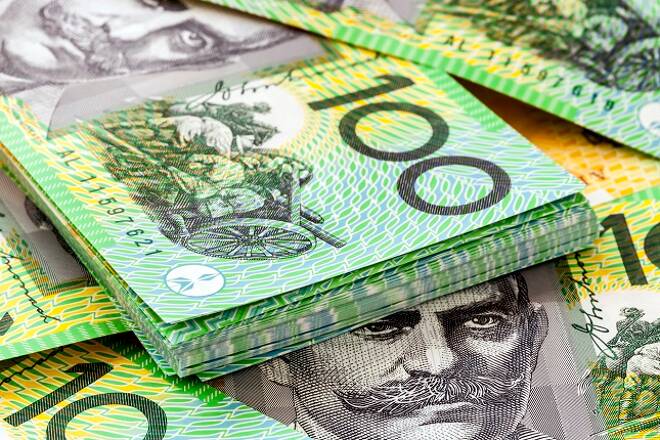Advertisement
Advertisement
Stocks Weaker in Asia, RBA Leaves Rates Unchanged, Libya Declares Force Majeure
By:
The general tone in the global equity markets was cautious as investors continued to monitor the developments over trade. China’s benchmark indexes extended their losses over worries Beijing’s trade relations with the United States are worsening. Concerns over trade relations continued to drive investors into the USD/JPY and U.S. Treasurys. Trade tensions also supported the dollar against commodity-linked currencies, like the Australian, New Zealand and Canadian Dollars. Crude oil is up after Libya declared force majeure on significant amounts of its supply.
Despite a strong recovery and higher close in the major U.S. stock indexes on Monday, Asian stocks were mostly lower on Tuesday, with China’s benchmark indexes extending their losses over worries Beijing’s trade relations with the United States are worsening.
In China, the benchmark Shanghai Composite fell 1.27 percent after reaching a two-year low on Monday and the smaller Shenzhen Composite retreated by 1.36 percent.
Playing “catch-up” with the other Asian indexes after a holiday on Monday, Hong Kong’s Hang Seng Index dropped 3.08 percent, led by steep losses in energy and services sectors. Japan’s Nikkei 225 also weakened by 0.65 percent. In South Korea, the Kospi inched lower by 0.37 percent.
The general tone in the markets was cautious as investors continued to monitor the developments over trade. Holding investors on edge was the looming July 6 deadline when the U.S. is expected to impose a 25 percent tariff on $34 billion worth of Chinese goods from more than 800 product categories. China is widely expected to retaliate with tariffs of their own on the same value of U.S. products.
U.S. Stock Indexes
The major U.S. stock indexes are trading lower early Tuesday after failing to sustain early session strength that was fueled by Monday’s strong reversal to the upside.
U.S stocks rose yesterday, the first trading day of the second half of the year, led by a solid recovery in tech stocks. However, lingering concerns over international trade relations limited gains.
Forex
The U.S. Dollar is trading slightly lower early Tuesday. On Monday, the Greenback posted a solid performance led mostly by weaker Euro. Concerns over trade relations continued to drive investors into the USD/JPY and U.S. Treasurys. Trade tensions also supported the dollar against commodity-linked currencies, like the Australian, New Zealand and Canadian Dollars.
Early Tuesday in Australia, the Reserve Bank held steady its benchmark interest rates for a record 23rd consecutive month as signs grow of a slowdown in the housing sector. Following its meeting today, the RBA kept the cash rate at 1.5 percent.
The move by the RBA pushed the odds of an RBA rate hike to early 2020. Last month, investors were betting on a November 2019 increase.
Crude Oil
U.S. West Texas Intermediate and international-benchmark Brent crude oil continued to build on Monday’s strong recovery from early weakness, edging higher early Tuesday after Libya declared force majeure on significant amounts of its supply.
About the Author
James Hyerczykauthor
James Hyerczyk is a U.S. based seasoned technical analyst and educator with over 40 years of experience in market analysis and trading, specializing in chart patterns and price movement. He is the author of two books on technical analysis and has a background in both futures and stock markets.
Advertisement
